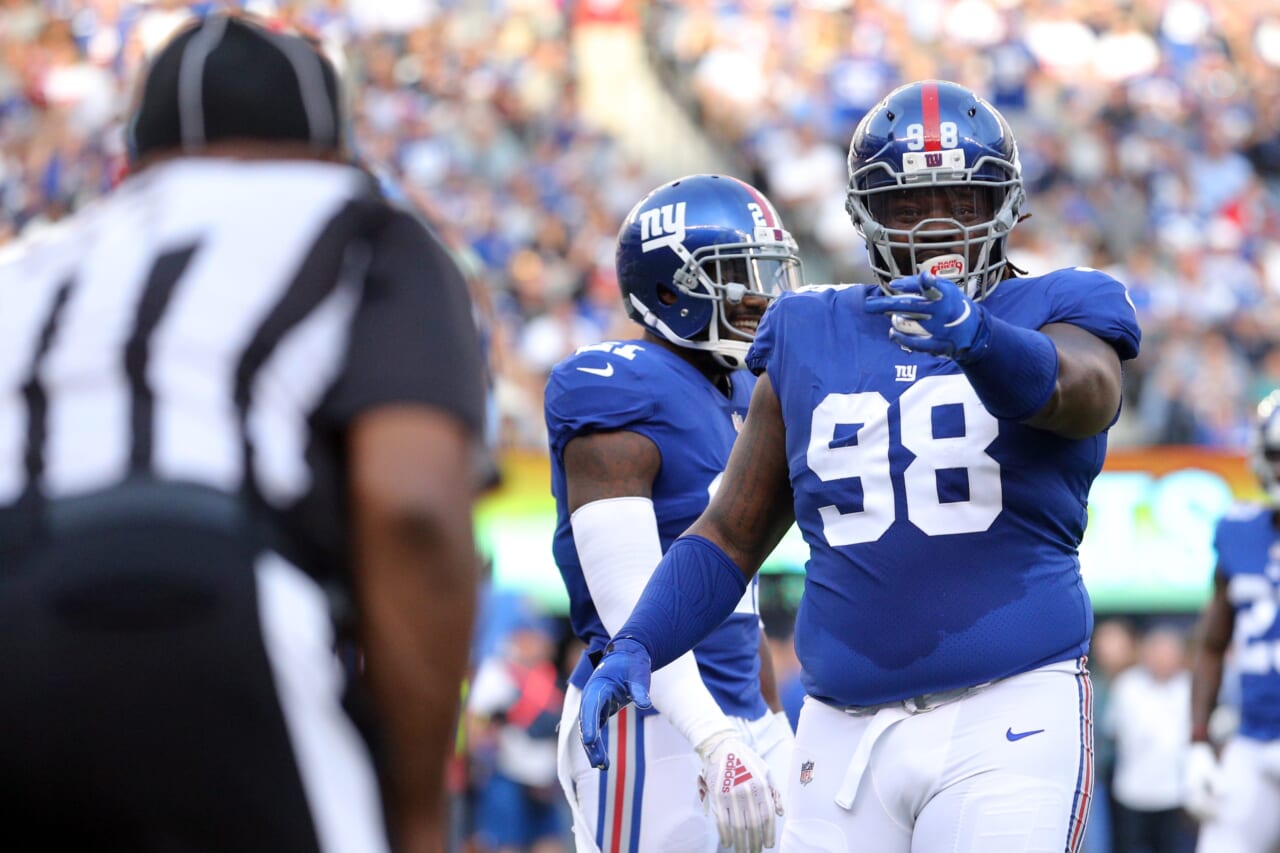When the New York Giants decided to trade away star defensive tackle, Damon “Snacks†Harrison for a measly fifth-round pick, the fan base went up in flames. Harrison was one of the most liked players on the team, equally by teammates and the fan-base.
The Giants’ signature run-stopper was moved to the Detroit Lions, who have enjoyed his presence thus far. Big Blue on the other hand has saw their run defense struggle mightily.
How has the New York Giants’ defense performed since Harrison’s departure?
Defensive coordinator James Bettcher’s defense allowed roughly 110 rushing yards per-game with Harrison on the field. Without, they’re averaging 152 yards per-game. That’s an additional 42-yards per-game, which can carry multiple touchdowns with it.
The Giants have allowed four rushing touchdowns in the last three games; before they had six the first seven games of the season. By looking at the math, we can conclude that Harrison, in fact, decreased the amount of rushing scores by one on a gamely basis.
To put this into perspective, his influence came by 47 less rushing yards per-game and a rushing touchdown. Now, can someone please explain why he was worth just a fifth-round pick?
One might say that he didn’t fit the mold of a 3-4 defense, which would be correct, given his lack of a pass-rush. Bettcher prefers his interior lineman to be able to put pressure on the quarterback, and ultimately that was a primary factor in the trading of Harrison. Was it the right move? Maybe, but we can see how the defense has performed since his departure.
One could make the argument that his contract ties up the Giants financially. He has an out of his contract at the end of the season, which the Giants were likely going to exercise if they couldn’t find a trade partner. My question is, why not keep him on a $7 million cap-hit? He’s an influential player in the locker roomer and clearly influences the run-defense significantly. In 2019, he would require $9.25 million in compensation at 31 years-old.
I can see the argument on both sides, but I would expect the Giants to allocate resources to bolstering the defensive line and linebacker corps next offseason. Only time will tell to justify the trading of the dominant run-stopper.
